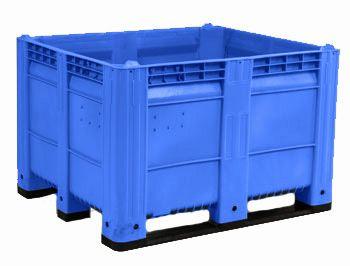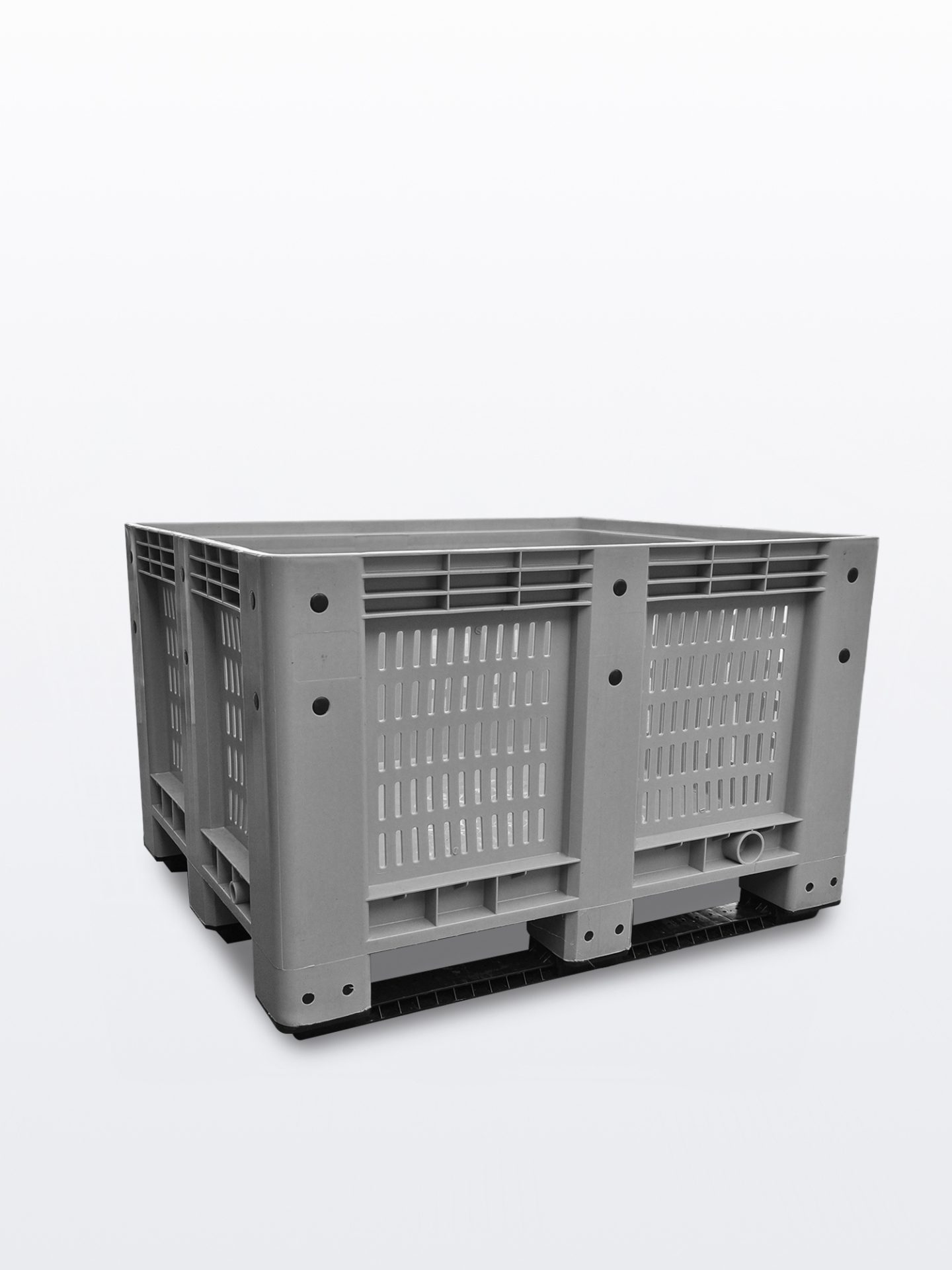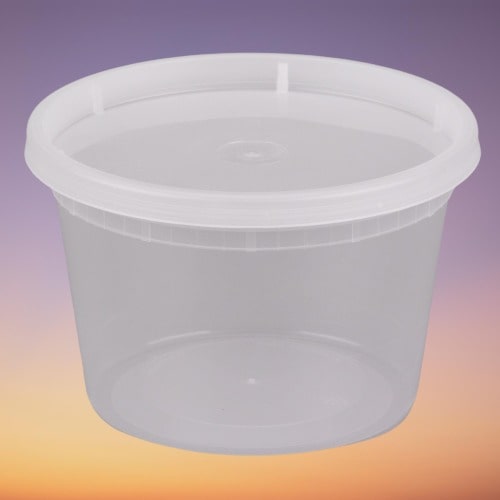How to maintain Bulk Plastic Containers for lasting performance
Wiki Article
A Comprehensive Guide to the Different Sorts Of Bulk Plastic Containers Available Today
Bulk plastic containers play a critical duty in various industries, offering services for storage and transport. Their varied kinds cater to different demands, from rigid choices for solid materials to versatile containers suiting various shapes. Each type provides unique benefits, making it necessary to recognize their attributes and applications. As markets progress, so do the demands for efficient container solutions. What variables should one take into consideration when picking the appropriate mass container?Introduction of Bulk Plastic Containers

Kinds of Bulk Plastic Containers
Mass plastic containers come in numerous kinds, each fit to certain applications. Inflexible mass containers, versatile bulk containers, and intermediate bulk containers represent the primary categories, each offering one-of-a-kind advantages. Recognizing these kinds is crucial for selecting the ideal container for transferring and saving materials.
Stiff Mass Containers
Rigid bulk containers are essential for effective storage and transportation of different materials across markets. These containers are normally created from sturdy plastics, permitting them to withstand harsh handling and environmental problems. They can be found in various shapes and sizes, including drums, bins, and totes, making them appropriate for saving every little thing from granular substances to fluids. Inflexible containers often include enhanced wall surfaces and protected lids, making sure the materials remain protected during transit. Their stackable design takes full advantage of storage area, making them excellent for storage facilities and making centers. Furthermore, several rigid mass containers are multiple-use and recyclable, contributing to sustainability initiatives. On the whole, their effectiveness and convenience make stiff bulk containers an important part in supply chain operations.Flexible Mass Containers
Versatile mass containers, usually described as versatile intermediate bulk containers (FIBCs), act as a flexible solution for storing a selection and moving of dry materials. These containers are generally made from woven polypropylene and are created to be light-weight yet strong, allowing for effective handling and stacking. Their adaptability allows them to suit various sizes and shapes, making them ideal for items varying from grains to chemicals. FIBCs can be geared up with features such as spouts for simple filling and discharge, as well as protective finishings for boosted resilience. Additionally, they are recyclable and reusable, adding to sustainable techniques in markets such as agriculture, food handling, and building and construction. In general, versatile mass containers offer a efficient and affordable choice for mass product management.Intermediate Bulk Containers
Intermediate bulk containers (IBCs) are necessary for the reliable transport and storage of liquids and granular materials throughout different sectors. These containers typically have a capacity ranging from 275 to 330 gallons and are created for simple piling and managing. Made from sturdy materials like high-density polyethylene or steel, IBCs supply superb defense against contamination and environmental factors. Their design consists of attributes such as a built-in pallet for forklift access and a removable top for very easy filling and cleansing. IBCs are extensively used in chemical, food, and pharmaceutical sectors, making sure compliance with safety regulations. Their convenience and reusability make them an economical service for bulk storage space and transportation, contributing to supply chain effectiveness and sustainability.Attributes and Advantages of Bulk Plastic Containers
Bulk plastic containers are important tools in numerous sectors, supplying a combination of longevity and functionality. These containers are created from top notch materials, making them immune to effects, chemicals, and environmental factors. This toughness assurances item security during storage and transportation.In addition, mass plastic containers are light-weight, facilitating simplicity of managing and minimizing shipping prices. Their stackable layout optimizes storage space efficiency, permitting enhanced storehouse space. Many versions feature secure covers or closures, giving a closed seal that protects components and avoids contamination.
Bulk plastic containers are recyclable and usually multiple-use, contributing to lasting techniques. Their versatility permits a vast array of applications, from food storage space to commercial usage, improving their value throughout sectors. Businesses take advantage of the lengthy life-span and reduced upkeep demands of these containers, making them an economical option for both temporary and lasting needs.
Industries That Use Bulk Plastic Containers
Different industries take advantage of using bulk plastic containers, each leveraging their distinct homes for particular applications. The food and drink market relies upon these containers for safe storage and transportation of products, while the chemical production sector uses them for taking care of harmful materials. Additionally, the pharmaceutical circulation needs stress the value of resilience and cleanliness in packaging solutions.Food and Drink Market
As the demand for reliable and risk-free storage services remains to increase, the food and beverage market progressively relies upon bulk plastic containers for their operational requirements. These containers give robust, lightweight, and functional choices for storing active ingredients, completed products, and waste products. Made from food-grade products, they assure conformity with health and wellness and safety and security requirements. Various designs, such as stackable containers and carry boxes, enhance area throughout transportation and storage space, enhancing logistical effectiveness. Additionally, the openness of some mass containers enables very easy inventory administration, lowering the risk of perishing. With the sector's concentrate on sustainability, lots of suppliers are currently offering reusable and recyclable alternatives, lining up with environment-friendly practices while fulfilling the high demands of food security and health.
Chemical Manufacturing Market
The chemical production field depends heavily on bulk plastic containers for the risk-free and efficient storage space of raw materials, intermediates, and finished items. These containers are developed to endure different chemicals, ensuring that dangerous products do not leakage or break down the container itself. Usual types include high-density polyethylene (HDPE) and polypropylene containers, which offer exceptional chemical resistance and sturdiness. Their light-weight nature and stackable layout facilitate transport and storage space, enhancing room in producing centers. In addition, numerous mass plastic containers feature features such as tamper-evident seals and easy-to-read labeling, enhancing security and conformity with sector regulations. In general, mass plastic containers are indispensable to the chemical manufacturing process, offering trustworthy remedies for handling varied compounds.Drug Circulation Requirements
Drug circulation counts on mass plastic containers to fulfill strict security and regulative needs. These containers are important for storing a selection and transferring of pharmaceutical products, including active pharmaceutical components (APIs) and completed medicines. Their style warranties defense versus dampness, light, and contamination, keeping the honesty of delicate materials. Furthermore, mass plastic containers are compliant with industry criteria such as Excellent Production Practices (GMP) and are typically made from materials that are FDA-approved. Using these containers boosts performance in the supply chain, enabling safe, large-scale circulation while decreasing waste. Business in the pharmaceutical industry focus on using resilient, leak-proof, and tamper-evident containers to assure item safety and security and high quality throughout the logistics process.Considerations for Choosing the Right Container
When picking the proper bulk plastic container, various variables have to be meticulously considered to ensure perfect functionality and safety and useful link security. The nature of the products to be saved is extremely important; compatibility with the container's material can affect stability and safety. bulk plastic containers for sale. Furthermore, the container's shapes and size should align with the storage space and transportation requirements, ensuring effective area usageLoad ability is one more important factor to consider, as it ought to fit the weight of materials without danger of damages or failing. The design functions, such as airing vent or covers, can affect use and access. Conformity with sector policies is crucial, especially in fields like pharmaceuticals, where security criteria are strict.
Finally, the expected life expectancy and toughness of the container ought to be analyzed to verify it meets the functional requirements without regular replacement. By reviewing these elements, one can select one of the most appropriate bulk plastic container for specific applications.
Ecological Impact and Sustainability
As organizations significantly focus on sustainability, the ecological impact of mass plastic containers has come under scrutiny. These containers, usually made from materials such as polyethylene or polypropylene, contribute greatly to plastic waste if not taken care of effectively. Their manufacturing entails the usage of fossil fuels, which can bring about enhanced greenhouse gas exhausts. Advancements in reusing innovation and the advancement of biodegradable alternatives are aiding to minimize these worries.Several suppliers are adopting practices that stress the use of recycled materials, therefore minimizing the need for virgin plastics. The toughness of mass plastic containers also contributes; they are made to be recycled numerous times, which can lessen their overall ecological impact when contrasted to single-use options. Eventually, the market deals with the obstacle of stabilizing capability with environmental obligation, making lasting techniques important for the future of mass plastic containers.
Finest Practices for Storage and Transportation
Efficient storage space and transportation of bulk plastic containers greatly influence both operational efficiency and sustainability. To make best use of space, organizations need to pile containers firmly, assuring stability and stopping damages. Correct labeling is necessary for very easy recognition, which streamlines retrieval procedures. Additionally, preserving a tidy and organized storage location reduces the danger of contamination and boosts safety and security.For transportation, choosing the appropriate automobile is important; containers should be safeguarded to prevent changing during transit. Business must also think about utilizing pallets to assist in less complicated loading and unloading. Normal assessments of containers for deterioration can prevent expensive substitutes.
Temperature level control is an additional essential aspect, as extreme conditions can compromise the integrity of the plastic. Lastly, training workers on finest methods for dealing with and transportation guarantees compliance and promotes a culture of safety and security. By applying these ideal methods, services can enhance their operational efficiency while contributing to environmental sustainability.
Often Asked Concerns
Exactly how Do I Clean Bulk Plastic Containers Properly?
To tidy bulk plastic containers properly, one need to rinse them with warm water, make use of a moderate cleaning agent and scrub with a soft brush. Wash thoroughly, after that enable to air completely dry totally before storage Go Here space or reuse.What Is the Life Expectancy of Bulk Plastic Containers?
The life-span of bulk plastic containers typically varies from 5 to ten years, depending upon the material, use, and environmental problems. Appropriate upkeep my explanation and storage can significantly extend their use and resilience with time.Can Bulk Plastic Containers Be Personalized?

Do Mass Plastic Containers Have Service Warranty Options?

Are There Regulations for Using Mass Plastic Containers?
Yes, laws exist for making use of mass plastic containers, mostly focused on safety and security, environmental influence, and product compliance. These guidelines guarantee that containers fulfill industry requirements and appropriate for moving numerous substances securely and effectively.Stiff bulk containers, flexible mass containers, and intermediate mass containers stand for the main groups, each offering one-of-a-kind benefits. Flexible bulk containers, usually referred to as flexible intermediate bulk containers (FIBCs), serve as a versatile service for storing a selection and carrying of dry materials. The chemical production industry counts greatly on bulk plastic containers for the reliable and risk-free storage of raw products, intermediates, and finished items. bulk plastic containers for sale. These containers are created to endure numerous chemicals, making sure that hazardous products do not leak or break down the container itself. Additionally, mass plastic containers are certified with sector criteria such as Great Production Practices (GMP) and are commonly made from materials that are FDA-approved
Report this wiki page